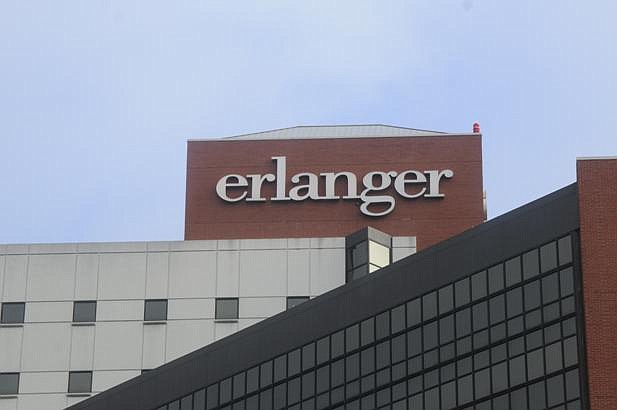A draft of Erlanger Health System's capital budget reveals the hospital plans to focus on primary care and infrastructure improvements in fiscal year 2020, but officials will also need to lower costs to bring that plan to fruition.
The Board of Trustees began the first step of the budget process Monday at its Budget and Finance Committee meeting, where Erlanger CFO Britt Tabor also shared the third-quarter financial report.
Although Erlanger's revenue continues to grow, the hospital's third-quarter operating income was nearly $8 million below budget at around $2.7 million, bringing its year-to-date operating income to $2.8 million and about $9 million under budget.
Tabor said in order to fund the proposed $40 million in capital investments, Erlanger will focus on controlling operational costs while also providing more uncompensated care than ever before.
"We are not satisfied with the expenses we have to do better," he said.
While many factors drive expenses, the time patients spent in the hospital combined with high overtime costs this quarter were largely to blame, Tabor said. Aside from improving scheduling to better sync with patient volumes, many of the capital requests - such as a post-anesthesia care unit, or PACU, expansion - will help move patients through the hospital more efficiently and lower costs, he added.
"You've heard so much about needing PACU beds flow from surgery - that has so many positive domino effects," Tabor said.
Dr. Amar Singh said Erlanger's growth has placed "tremendous demand" on the existing facilities.
"Therefore, it becomes even more prudent for us, if you want to sustain this growth, to look at investing in our capital and funding those projects, otherwise the system will get to the point of breakdown," Singh said.
Officials said the move to expand primary care is both strategic and necessary, because patients need more access.
Committee chairman Henry Hoss voiced concern that bond underwriters may balk at $40 million worth of capital spending.
"I think they would prefer to see us spend a little less," he said. "That may be a direction that we perhaps need to go in order to take the pressure off and give us a little bit of cash flow."
CEO Kevin Spiegel said that they will continue to tweak the plan, but he feels confident in the hospital's direction.
"Even though we were less than budget, we still have the market share," Spiegel said. "The only way to deal with what's going on in health care is to grow. And if you're not growing, you're going to die."
The full board met Thursday and approved an amended resolution to lease medical office space in Bradley County for a total cost not to exceed $2,177,581.
Contact staff writer Elizabeth Fite at efite@timesfreepress.com or 423-757-6673.
